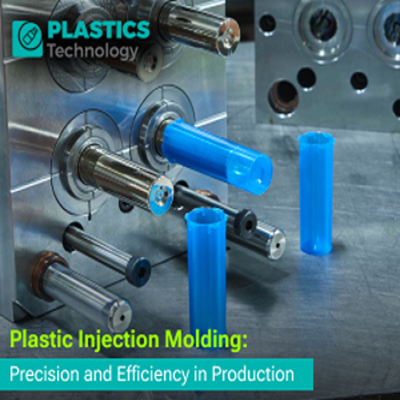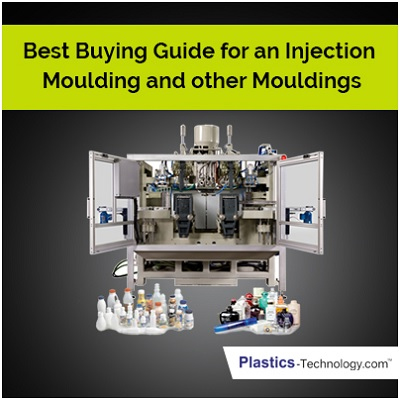Articles
Plastic Injection Molding: Precision and Efficiency in Production

Introduction:
Plastic injection molding has emerged as a cornerstone of modern manufacturing, providing an efficient and precise method for producing a diverse range of plastic products. This revolutionary technique involves injecting molten plastic into a meticulously designed mold, resulting in a high-quality, and finely detailed end product. With its widespread applications across industries, plastic injection molding has become an essential process for creating everything from intricate medical devices to durable automotive components. This article will explore the intricacies of plastic injection molding, highlighting its precision, efficiency, and diverse applications in various sectors.
Understanding the Process:
At its core, plastic injection molding is a methodical process that demands careful attention to detail. It begins with the feeding of plastic pellets into a heated barrel, where they are melted to a precise viscosity suitable for injection. The molten plastic is then forcibly injected into a meticulously crafted mold under high pressure. This mold, typically made of steel or aluminum, determines the shape and intricacies of the final product.
Once the molten plastic cools and solidifies within the mold, it takes on the desired shape and structure. The mold is then opened, and the newly formed product is ejected, ready for any necessary finishing touches. The precision of this process allows for the creation of products with intricate detailing, ensuring uniformity and accuracy in the final output.
| Also Read:Revolutionizing Plastic Manufacturing: Advances in Precision Molding Technologies |
Advantages of Plastic Injection Molding:
Plastic injection molding offers a plethora of advantages that have solidified its position as a go-to manufacturing process for numerous industries. One of its key benefits is its capability to produce intricate and complex shapes that would be challenging to achieve through other manufacturing methods. This flexibility allows for the creation of products with varying shapes, sizes, and textures, catering to diverse industry requirements.
Furthermore, plastic injection molding is known for its efficiency in producing high volumes of products within short time frames. With minimal manual intervention, automated machinery can swiftly generate thousands of identical products, leading to a streamlined and cost-effective production process. This capability is crucial for meeting market demands and maintaining competitive pricing, particularly in industries where mass production is essential.
The durability and strength of products manufactured through plastic injection molding make them suitable for various demanding applications. These products exhibit excellent resistance to wear and tear, as well as to various environmental factors, making them ideal for use in industries such as automotive manufacturing, consumer electronics, and household appliances.
| Also Read: The Art of Plastic Injections in Manufacturing |
Applications across Industries:
The versatility of plastic injection molding allows for its widespread application across various sectors, each reaping the benefits of its unique characteristics. In the automotive industry, plastic injection molding is utilized for manufacturing an array of components, including intricate dashboards, durable bumpers, and stylish interior trims. The ability to produce lightweight yet robust parts with complex designs contributes to the overall efficiency and performance of vehicles, while also enabling manufacturers to meet stringent safety standards and fuel efficiency requirements.
In the medical field, plastic injection molding plays a pivotal role in the production of intricate medical devices and equipment. This process ensures the precise manufacturing of tools and components crucial for patient care, while also meeting the strict regulatory standards for quality and safety. The use of this technique guarantees the production of sterile, high-quality products that are essential for advancements in healthcare technology, ultimately contributing to improved patient outcomes and enhanced medical procedures.
Additionally, the consumer electronics industry heavily relies on plastic injection molding for the production of casings, buttons, and various intricate parts. This process allows manufacturers to create custom designs and incorporate innovative features, facilitating the development of sleek and user-friendly electronic devices. The precise manufacturing capabilities of plastic injection molding contribute to the production of high-quality, aesthetically appealing products that meet the ever-evolving demands of tech-savvy consumers.
Furthermore, the packaging industry benefits significantly from plastic injection molding, as it enables the creation of custom-designed packaging materials that not only protect the products but also enhance their visual appeal. Whether it's intricate bottle caps, food containers, or specialized packaging for fragile items, plastic injection molding ensures the production of durable, visually appealing, and cost-effective packaging solutions that cater to the unique requirements of various products.
Conclusion:
Plastic injection molding has undoubtedly revolutionized the manufacturing industry, offering unparalleled precision, efficiency, and versatility in the production of a wide array of plastic products. Its ability to create complex designs, coupled with its high-volume production capabilities, makes it an indispensable process across various industries. As technology continues to advance, plastic injection molding is poised to play an even more significant role in shaping the future of manufacturing, driving innovation and progress in diverse sectors worldwide.




